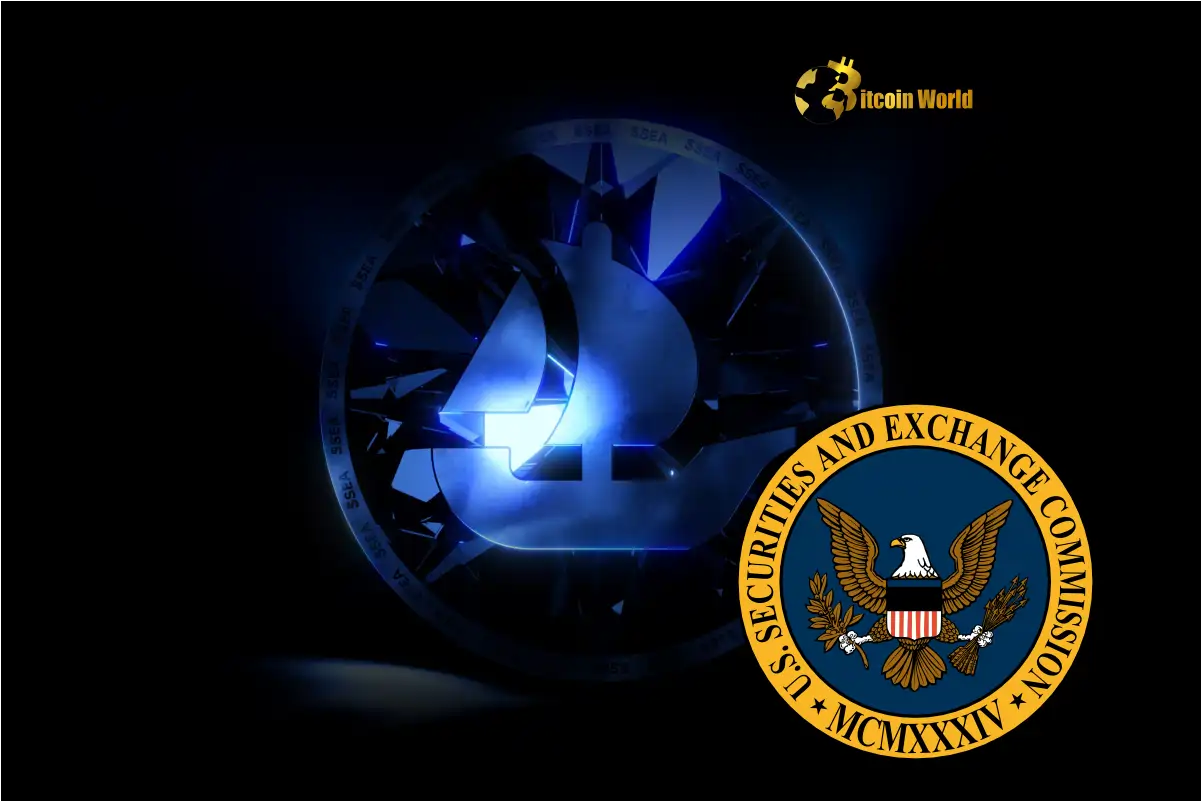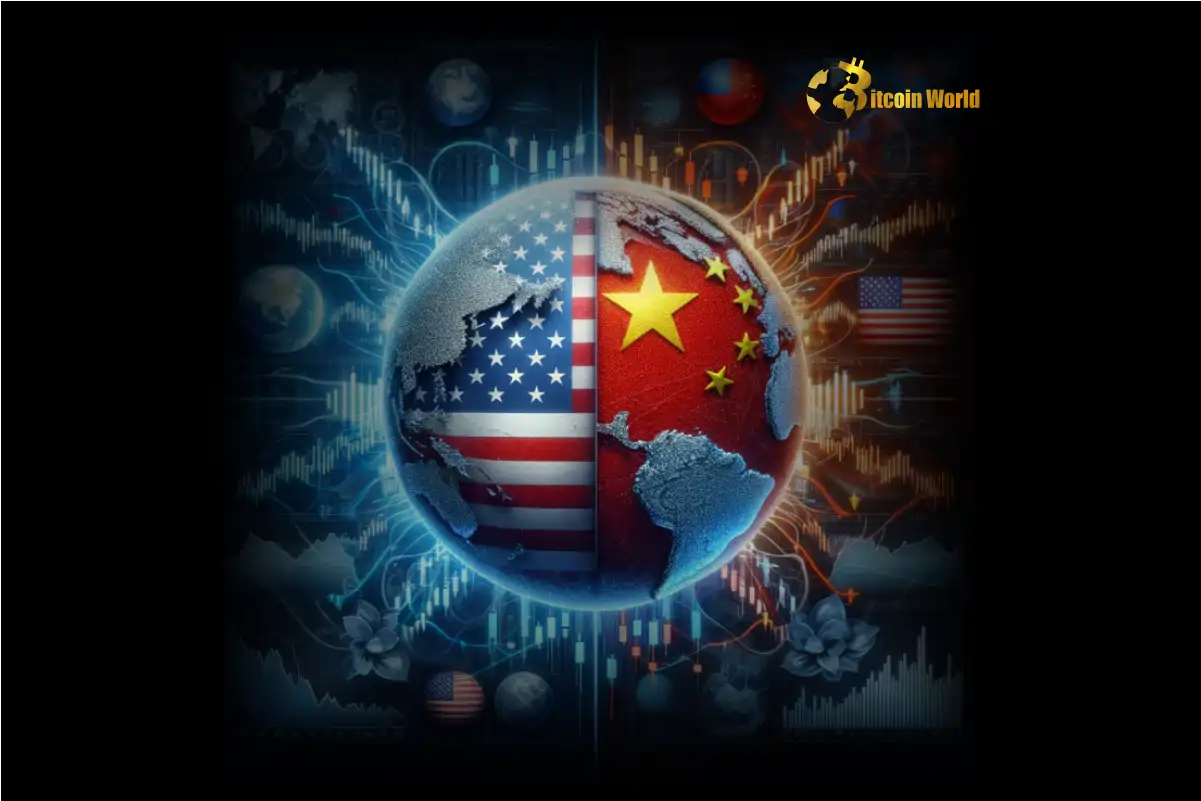Navigating the burgeoning world of NFTs can feel like charting unknown waters, especially when it comes to regulation. Leading NFT marketplace OpenSea is now at the forefront, urging the Securities and Exchange Commission (SEC) to provide much-needed clarity. This move could redefine how NFT marketplaces operate and impact the future of digital asset trading. Let’s dive into why OpenSea is making this urgent plea and what it means for the crypto community.
The Core Issue: Defining NFT Marketplaces Under Existing Regulations
At the heart of OpenSea’s request is a fundamental question: How should NFT marketplaces be classified under current securities laws? In a detailed letter addressed to Hester Peirce, a key figure in the SEC’s Cryptocurrency Task Force, OpenSea articulated its position. They argue that existing regulations, specifically the Exchange Act, don’t neatly apply to NFT marketplaces due to the unique nature of NFT transactions.
Here’s a breakdown of OpenSea’s main arguments:
- Decentralized Transactions: OpenSea emphasizes that NFT transactions are executed via immutable smart contracts. This means the platform doesn’t operate in the same way as traditional exchanges with “multiple sellers” actively managed by a central entity.
- No Investment Solicitation: OpenSea asserts it doesn’t solicit investments or act as an agent guiding users towards specific investment opportunities. It provides a platform for users to interact directly through self-executing code.
- Not Broker-Dealers: Based on the above points, OpenSea contends that it shouldn’t be classified as an exchange or broker-dealer under securities laws. They are seeking explicit confirmation from the SEC on this interpretation.
This isn’t just about semantics; it’s about establishing a clear regulatory framework that fosters innovation while protecting users. The current ambiguity leaves NFT marketplaces in a legal grey area, potentially stifling growth and creating uncertainty for participants.
Why is SEC Clarity on NFT Regulation So Crucial?
The SEC’s stance on NFT regulation carries significant weight. Clarity in this area is not just beneficial for platforms like OpenSea but for the entire NFT ecosystem. Let’s explore why this regulatory clarity is so vital:
- Encourages Innovation: Clear rules of the game allow for sustainable innovation. When NFT marketplaces understand the regulatory boundaries, they can confidently develop new features and services without fear of unexpected legal repercussions.
- Attracts Institutional Investment: Institutional investors often shy away from markets with regulatory uncertainty. Clear cryptocurrency regulation, specifically for NFTs, can pave the way for larger institutional participation, bringing more capital and stability to the NFT space.
- Protects Users: Appropriate regulation, when clearly defined, is essential for user protection. It can help establish standards for transparency, security, and fair practices within NFT marketplaces.
- Global Market Harmonization: SEC guidance can influence global regulatory approaches. Clarity in the US market, a significant player in the crypto world, can set a precedent for other jurisdictions, fostering a more harmonized global NFT regulation landscape.
OpenSea’s Perspective: More Than Just a Marketplace?
OpenSea’s argument hinges on its interpretation of its role in the NFT ecosystem. They position themselves as a technology provider, facilitating peer-to-peer transactions rather than operating as a traditional financial intermediary. Let’s delve deeper into OpenSea’s operational model and their claims:
| Feature | OpenSea’s Claim | Traditional Exchange Model |
|---|---|---|
| Transaction Processing | Via immutable smart contracts | Centralized order book and matching engine |
| Seller Interaction | Platform provider, not direct seller | Directly facilitates and manages seller activities |
| Investment Advice | Does not provide investment advice | May offer investment products or recommendations |
| Role | Technology platform | Financial intermediary, potentially broker-dealer or exchange |
By highlighting these distinctions, OpenSea aims to differentiate itself from entities traditionally regulated by the SEC. Their argument is that applying securities laws designed for conventional exchanges to decentralized NFT marketplaces like theirs is a regulatory mismatch.
The SEC Investigation and What’s Next for NFT Marketplaces
It’s noteworthy that the SEC previously conducted an investigation into OpenSea, which was closed in February. While the details of this investigation remain undisclosed, its closure could be interpreted as a positive sign for OpenSea. However, the broader question of cryptocurrency regulation, particularly for NFTs, remains open.
Looking ahead, several potential scenarios could unfold:
- SEC Provides Explicit Guidance: The SEC could issue formal guidance clarifying how existing securities laws apply to NFT marketplaces. This is what OpenSea is hoping for and would bring much-needed certainty.
- New Regulatory Framework: Recognizing the unique nature of NFTs, the SEC might develop a new regulatory framework specifically tailored for digital assets. This could involve creating new categories and rules that address the specific characteristics of NFT marketplaces.
- Continued Ambiguity: The SEC might choose to maintain the current level of ambiguity, potentially taking enforcement actions on a case-by-case basis. This scenario would likely prolong uncertainty and could stifle innovation.
- Legislative Action: Ultimately, comprehensive cryptocurrency regulation, including for NFTs, might require legislative action from Congress to create a clear and modern legal framework.
Actionable Insights: Navigating the NFT Regulatory Landscape
For those involved in the NFT space—creators, collectors, marketplaces, and investors—understanding the evolving regulatory landscape is paramount. Here are some actionable insights:
- Stay Informed: Keep abreast of regulatory developments from the SEC and other relevant bodies. Follow industry news and legal analyses to understand potential changes in NFT regulation.
- Engage in Dialogue: Participate in industry discussions and forums focused on regulatory issues. Contributing to the conversation can help shape future policies.
- Seek Legal Counsel: If you are operating an NFT marketplace or involved in significant NFT activities, consult with legal professionals specializing in cryptocurrency and securities law to ensure compliance and mitigate risks.
- Advocate for Clarity: Support industry initiatives that advocate for clear and sensible cryptocurrency regulation. Clarity benefits all stakeholders in the long run.
Conclusion: A Pivotal Moment for NFT Regulation
OpenSea’s urgent call for SEC clarity marks a pivotal moment in the evolution of NFT regulation. The outcome of this dialogue will not only shape the future of OpenSea but also the broader NFT ecosystem. As the digital asset space continues to mature, establishing a clear and balanced regulatory framework is essential to unlock its full potential while safeguarding users and fostering sustainable growth. The industry watches with anticipation as the SEC considers OpenSea’s plea and the path forward for NFT marketplaces.
To learn more about the latest cryptocurrency regulation trends, explore our article on key developments shaping cryptocurrency regulatory landscape.
[ad_2]
Source link






